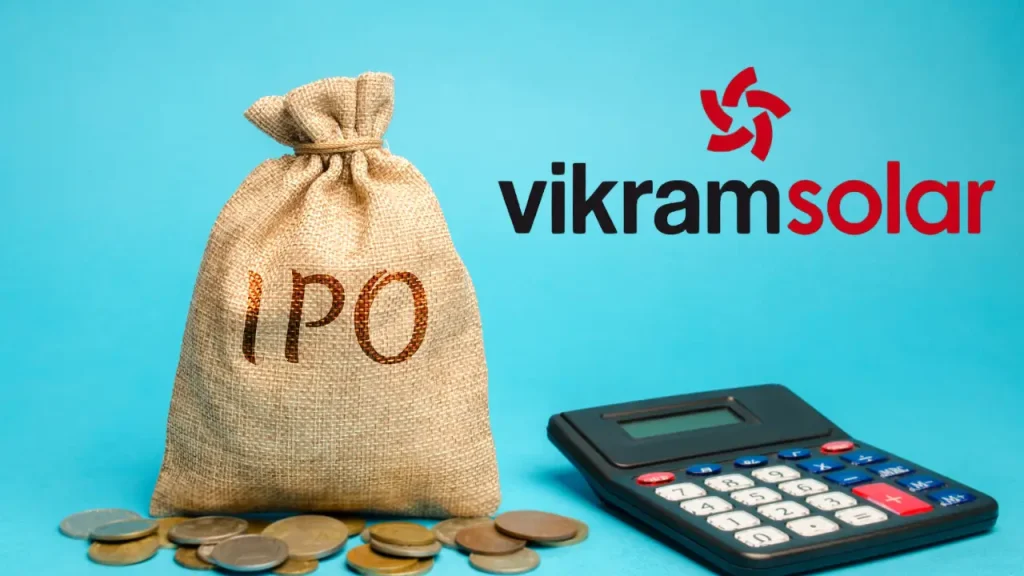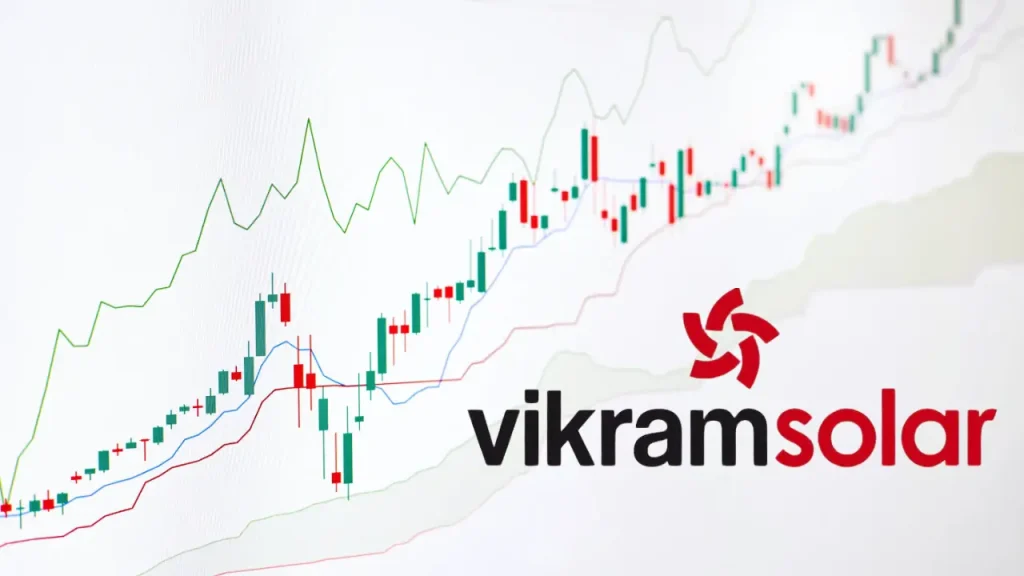Vikram Solar Shares Make Modest Debut at 2% Premium Over IPO Price
Vikram Solar’s initial public offering (IPO) made a somewhat subdued debut on the stock market on August 26, listing with a modest premium of 2% over the issue price. The company, which is one of India’s leading manufacturers of solar photovoltaic (PV) modules, had generated considerable buzz ahead of the listing, but the actual performance fell short of expectations.
- Vikram Solar Shares Make Modest Debut at 2% Premium Over IPO Price
- Vikram Solar IPO: A Quick Recap
- Stock Performance and Market Sentiment
- Vikram Solar: A Strong Player in India’s Solar Market
- Financial Performance: Consistent Growth
- Risks and Challenges
- What’s Next for Vikram Solar?
- Analyst Opinions
- Conclusion
Vikram Solar IPO: A Quick Recap
The ₹2,079-crore IPO was open for subscription from August 19 to 21, and it was met with overwhelming demand, being subscribed 54.63 times overall. The price band for the IPO was set between ₹315 and ₹332 per share, and the company raised ₹621 crore from anchor investors ahead of the offering.
On its debut day, Vikram Solar’s shares were listed at ₹338 per share on the National Stock Exchange (NSE), reflecting a 1.81% premium, while on the Bombay Stock Exchange (BSE), the shares debuted at ₹340 per share, marking a 2.4% premium over the issue price.
Despite the strong investor interest and the solid subscription numbers, the shares listed at a much lower premium than what the grey market had initially predicted. Before the listing, there were expectations for a more than 10% gain, but the actual performance was closer to 2%.
Stock Performance and Market Sentiment
As the trading session progressed, Vikram Solar shares saw a mild rally. The stock ended the day at ₹357.50 on the NSE, which represents a 7.68% premium to the IPO price, and ₹356.45 on the BSE, a 7.36% premium. While the initial listing price was lower than expected, the post-listing performance showed investor confidence in the company’s long-term growth prospects.
Akhilesh Desai, a Research Analyst at Ajcon Global Services, pointed out that India’s solar power sector is poised for rapid growth due to favorable government policies and rising clean energy demand. He suggested that short-term investors might book profits, while long-term investors, especially those with a higher risk appetite, should hold on to their shares for future growth.
Vikram Solar: A Strong Player in India’s Solar Market
Founded in 2009, Vikram Solar has grown significantly, with an installed solar PV module manufacturing capacity of 4.50 GW as of now. The company operates two manufacturing facilities in West Bengal and Tamil Nadu, and it also has a solar cell manufacturing plant in Gangaikondan, Tamil Nadu.
The company has established a robust pan-India presence, serving 19 states and two Union Territories. Among its key domestic customers are prominent government entities like NTPC and Neyveli Lignite Corporation, as well as large private independent power producers (IPPs) such as Adani Green Energy, Azure Power, and JSW Energy, among others.
Financial Performance: Consistent Growth
Vikram Solar has demonstrated impressive financial growth in recent years. From FY23 to FY25, the company’s revenue from operations grew at a compound annual growth rate (CAGR) of 28.5%, rising from ₹20,732 million to ₹34,235 million. Its earnings before interest, taxes, depreciation, and amortization (EBITDA) also saw a significant increase, growing at a CAGR of 62.6% from ₹1,862 million in FY23 to ₹4,920 million in FY25.
In addition to its strong financial performance, Vikram Solar has a solid order book of 10.3 GW, which bodes well for future revenue growth.
Risks and Challenges
Despite the positive growth trajectory, Vikram Solar faces some risks that investors should be aware of. As of FY25, 98.23% of the company’s operational revenue is derived from solar PV modules, making its success heavily reliant on this sector.
Additionally, a significant portion of its revenue comes from a few large customers, with 77.50% of its revenue generated from its top five customers and 88.72% from its top ten customers. This concentration could pose a risk to the company’s long-term financial stability.
Also Read: Amaal Malik On Bigg Boss 19: Talks Depression, Family Rift & Finding Himself.
What’s Next for Vikram Solar?
Looking ahead, Vikram Solar plans to use the proceeds from its IPO for capital expenditure and expansion projects, including two major phases of investment. It aims to invest ₹769.73 crore in Phase-I through its subsidiary VSL Green Power Private Limited, and ₹595.21 crore for its Phase-II project. The remaining funds will be allocated to general corporate purposes.
Analysts believe that Vikram Solar’s strong order book, government backing, and focus on renewable energy position the company well for future growth in India’s booming solar power sector. While the stock may face short-term volatility, long-term investors could benefit from the country’s transition to clean energy.
Analyst Opinions
Shivani Nyati, Head of Wealth at Swastika Investmart, advises holding Vikram Solar shares for the long term, with a stop-loss set at ₹320–₹325 to manage potential downside risks. Nyati emphasized that while the initial listing gains were modest, the company’s strong financials and position in the solar energy market make it a good long-term investment.
Gaurav Garg, from Lemonn Markets, echoed this sentiment, calling Vikram Solar a promising long-term play in India’s clean energy transition. The government’s focus on promoting domestic manufacturing under the “Atmanirbhar Bharat” initiative further strengthens the company’s growth outlook.
Conclusion
Vikram Solar’s IPO debut may not have been as spectacular as some had hoped, but the company’s fundamentals and strong market position indicate that it has the potential for significant long-term growth. For investors, especially those focused on the renewable energy sector, Vikram Solar could be a solid addition to their portfolios.


















